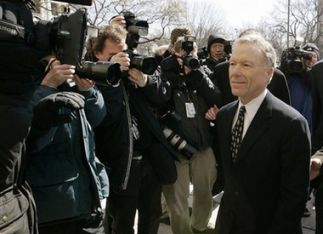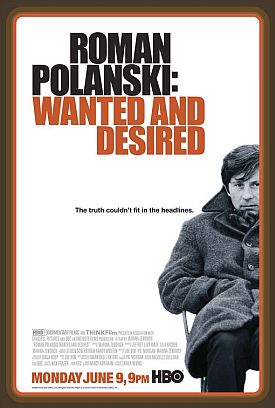Enviable positions
From The New CriterionNot me. Honest.
As a conservative, I am temperamentally inclined to reject out of hand the sub-type of the genetic fallacy which Leo Strauss seems to have been the first to call the Reductio ad Hitlerum. “A view is not refuted by the fact that it happens to have been shared by Hitler,” as Professor Strauss so wisely put it in Natural Right and History of 1953 — by which time it must have been pretty clear that the rhetorical tactic of claiming one’s opponent’s temperamental or ideological kinship with the late German dictator and mass murderer would most often be directed against conservatives. Conservatives believe in the family and the nation and in military strength, after all, and so did Hitler. Of course, there were lots of other things that Hitler believed that conservatives don’t believe — and some of them, as Jonah Goldberg pointed out in Liberal Fascism, were things that liberals do believe. But then, Mr Goldberg was sometimes less admired for turning the tables on the left’s guilt-by-association tactic than criticized for engaging in a reductio ad Hitlerum himself.
Anyway, I naturally have mixed feelings when someone with whom I think of myself as being politically in sympathy starts making comparisons between Nazis and those with whom we are both out of sympathy. One such is Tom Perkins, a Silicon Valley entrepreneur who wrote a letter to The Wall Street Journal in January purporting to identify tendencies not entirely un-Nazi-like among those of our fellow-citizens who call themselves progressives:
Writing from the epicenter of progressive thought, San Francisco, I would call attention to the parallels of fascist Nazi Germany to its war on its “one percent,” namely its Jews, to the progressive war on the American one percent, namely the “rich.” From the Occupy movement to the demonization of the rich embedded in virtually every word of our local newspaper, the San Francisco Chronicle, I perceive a rising tide of hatred of the successful one percent. . . This is a very dangerous drift in our American thinking. Kristallnacht was unthinkable in 1930; is its descendant “progressive” radicalism unthinkable now?
The letter was, as you can see from the above, not terribly well-written or reasoned, and Mr Perkins was forced to apologize for the incendiary reference to Kristallnacht. But, as the Journal’s editorial page noted, the howls of protest from progressives did rather suggest that he was on to something, even if he had been a little unwise in his choice of analogies.
After all, as the Journal subsequently pointed out and as The New Criterion’s “Notes and Comments” section noted and commented last month, it was only a few days before Mr Perkins’s letter appeared that the Governor of New York, Andrew Cuomo, speaking in a radio interview of those who opposed abortion, same-sex marriage and gun control, said that, “If they are extreme conservatives, they have no place in the state of New York.” It wasn’t exactly ethnic cleansing, or even a wish for ethnic cleansing, but the basic idea of driving out or eliminating those whom you don’t like or with whom you don’t agree had worrying points of similarity with such regrettable episodes in recent history, not to mention Kristallnacht. In fact, it could be argued that Governor Cuomo’s words were themselves a disguised reductio ad Hitlerum on account of the implied identification of “extreme conservatives” with those — sc. Nazis — whom decent people might well not want to count among their neighbors.
Ruth Wisse, who has some standing to comment on Jewish sensitivities, wrote also in the Journal, that
stoking class envy is a step in a familiar, dangerous and highly incendiary process. Any ideology or movement, right or left, that is organized negatively — against rather than for — enjoys an inherent advantage in politics, mobilizing unappeasable energies that never have to default on their announced goal of cleansing the body politic of its alleged poisons. In this respect, one might think of anti-Semitism as the purest and most murderous example of an enduring political archetype: the negative campaign.
Understandably, it is offensive to Jews to compare the persecution of Nazis to the Nazi persecution of Jews, but the real offense lies in identifying people as the moral equivalent of Nazis in the first place. Apart from anything else, it trivializes the crimes of the real Nazis. In other words, Mr Perkins’s letter was just a clumsier version of Mr Goldberg’s attempt to turn the tables on the left. Feeling himself the object of hatred, he couldn’t resist saying, “You know who else were big-time haters. . .?” Of course, in doing so he only delighted the left by giving them something else to hate him for, besides being rich.
And in good time he did so, too, since otherwise the haters would have been decidedly short of things to allege against him — besides being rich, that is. After heaping scorn upon his “ignorant comments,” for example, Katrina vanden Heuvel wrote in The Washington Post that inequality “continues to spiral out of control” because “the rich, not the poor, are winning big” — which sounds like a tautology to me but for her was reason enough to lump poor Mr Perkins, or rather not-poor Mr Perkins, with the “rattled” rich who are presumed to be stricken with a guilty “awareness of what they have gotten away with. They waged class warfare, as Warren Buffett noted, and they won. They rigged the rules and made out like bandits.” So, then, Mr Perkins rigged the rules and made out like a bandit? No, no. She’s not saying that. She claims that some progressive senators are beginning to name names but, oddly enough, she is not. For her, all that matters is that Mr Perkins is rich, since that automatically and indelibly makes him a member of the despised “they,” the guilty class of those who did the rigging and, thus, the banditry. It rather nicely makes Mr Perkins’s point for him, don’t you think?
Like others on the angry left who have lately taken to calling themselves “populists,” Ms vanden Heuvel, is cross with President Obama for being apparently less angry than they are at the rich. But, like her and unlike the great majority of Americans, he does claim to regard economic inequality as among the top problems facing the country right now. Indeed, he alleged in a speech in December that “a dangerous and growing inequality and lack of upward mobility” was “the defining challenge of our time.” Let us set on one side for the moment the doubts of some competent observers that there is any “growing inequality” and concentrate instead on the alleged dangerousness of it. I can imagine myself annoyed, offended or even outraged by inequality, but I can’t quite imagine finding it dangerous. Perhaps the word betokens a private fear on the President’s part that we are in a pre-revolutionary situation and that the peasants with pitchforks, as filled with hatred for the rich as Ms vanden Heuvel or the San Francisco Chronicle, are already dancing the Carmagnole in the farmsteads of Kansas and the hollows of West Virginia. But if that were the case, why would he need to try to persuade us that inequality was either dangerous or a problem? It would already be manifest that it was both.
Surely, what’s important to most people is how much they have, or think they can get, and not how much this may be in relation to how much somebody else has or can get? In Britain, where more people than in the US are inclined to think inequality a problem, Matt Ridley of The Times of London stipulates that the problem exists in order “to try to understand why it is that people mind so much today, when in many ways inequality is so much less acute, and absolute poverty so much less prevalent, than it was in, say, 1900 or 1950.”
Now that starvation and squalor are mostly avoidable, so what if somebody else has a yacht? The short answer is that surely we always have and always will care more about relative than absolute differences. This is no surprise to evolutionary biologists. The reproductive rewards went not to the peacock with a good enough tail, but to the one with the best tail. A few thousand years ago, the bloke with one more cow than the other bloke got the girl, and it would have cut little ice to try to reassure the loser by pointing out that he had more cows than his grandfather, that they were better cows, or that he had more than enough cows to feed himself anyway. What mattered was that he had fewer cows.
Of course there are lots of other things besides envy for which evolution offers handy explanations. The other six of the seven deadly sins for starters. But the point of culture, including political culture, has always been to find ways of limiting the potential for conflict that a blind obedience to evolutionary instinct would entail. Culture, too, evolves and is as natural to us as instinct. Or disease. And among the diseases of culture is the urge to find someone else to blame for our own dissatisfactions and frustrations — an urge long exploited by the left with an appeal to the plausible but false assumption that, if you don’t have enough, it must be because someone else has too much.
In other words, to divide the world into exploiters (identifiable, like Mr Perkins, merely by the amount in their bank accounts) and exploited (essentially everybody else) is to invite into one’s political culture what are basically the same urges that, in a much more virulent form, led to Kristallnacht, or the Russian revolution. People like Katrina vanden Heuvel and her fellow populists imagine that they can control these urges and channel them into benign social change, but the history of those who have been successful at arousing the wrath of some citizens against others whom they have learned to blame for their misfortunes, especially when there are lots of such misfortunes looking for someone who can take the blame for them, is not encouraging to such hopes. “Good” and “bad” are always implied by such binary thinking as the exploitation model involves, and this moralization of political differences takes on a life of its own until there is no politics left that does not involve a hunt for bad people — many of whom don’t even know that they’re bad until they find themselves classed with those, like the rich, who must be bad by definition.
This is, in fact, what we see happening in our media and political culture today, from what Charles Krauthammer used to call “Bush Derangement Syndrome” on the left to the more recent enthusiasm on both sides for charging one’s political opponents, as I have noticed in these pages, with dishonesty or corruption, from the media’s obsession with finding evidence for the guilt of Governor Chris Christie for traffic jams on the George Washington Bridge to the obsessive search for anything that can be construed as racism in the Tea Party, or among the Republican opponents of President Obama, which on MSNBC has become the stock-in-trade of an entire cable network. As in those cases, the attempt to raise the profile of inequality as “the defining challenge of our time” begins to look like a diversionary tactic, an emotionally potent appeal whose purpose must be at least partly to distract people from what is by now guaranteed to be the defining challenge of our children’s and grand-children’s time and was until recently thought by Republicans to be pretty serious in ours as well. But somehow political concern over the spending of trillions of dollars of borrowed money for current expenses, the necessary limitation of which keeps being deferred to what those who concern themselves with fiscal matters amusingly call “the out years” — meaning the years when they will be out of power and the massive debt, compounded with even more massive unfunded liabilities, will be somebody else’s problem — turned out to be a political loser.
The media, at any rate, naturally found it a lot less sexy than a crusade to identify and denounce — and, ultimately, to punish — bad people. Against that background, the attempt to make income inequality a central concern of the federal government must be admitted to have some sinister overtones. There is an implicit recognition of the fact in President Obama’s tentativeness, so repugnant to gung-ho lefties like Katrina vanden Heuvel, about using the term at all when he returned to the subject in his State of the Union speech. As Jackie Calmes wrote in The New York Times,
Like so many political fights, the one between President Obama and Republicans over income inequality has become a battle over language. Is it about inequality of incomes or of opportunity? On this question, the president and his party have moved in Republicans’ — and voters’ — direction. To Republicans, talk of income inequality smacks of class warfare and redistribution of wealth, of taxing the rich to give to the poor. They prefer to emphasize opportunity and upward mobility, and Democrats, too, have come to see that frame as more appealing to middle- class voters in this midterm election year. For years, Mr. Obama has spoken of gaps in both income and opportunity between the privileged and everyone else in a changing economy. But his emphasis has shifted. In his State of the Union address last week, he spoke 10 times of expanding “opportunity” and twice of income inequality. That ratio was roughly flipped in his signature speech on the topic in Osawatomie, Kan., just over two years ago.
As Ms Calmes notes, the President’s ringing declaration that “opportunity is who we are. And the defining project of our generation must be to restore that promise” sounds like an attempt to steer clear of the politics of envy and may be what irritates the left. Unsurprisingly, she does not find it a very interesting question how far the President’s adopting of Republican language betokens a move in the direction of Republican policies, apart from quoting, without comment, Representative Paul Ryan, once the hammer of fiscal profligacy who has lately made his own accommodation with public opinion, as saying that the President “has a very interesting rhetorical technique . . . which is to borrow the language of those he disagrees with to sell what he’s peddling.” But the modification of rhetoric is itself significant. Notwithstanding the recent electoral successes of economic populists like Bill de Blasio in New York — who enthusiastically seconded Governor Cuomo’s invitation to conservatives to get out of his state — or Elizabeth Warren in Massachusetts, the conventional political wisdom must still be that too much stress on the negative and on the other side as bad guys remains a losing strategy outside the country’s most left-wing enclaves. At least we conservatives may hope that it is.
Discover more from James Bowman
Subscribe to get the latest posts to your email.







